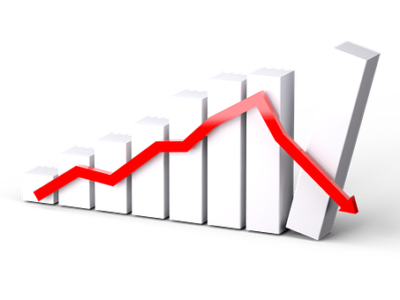COVID-19 Will Make You Adapt to Change
What a strange year 2020 has been so far.
As I often mention on this site, times change. Things come and go. We adapt to change. And, eventually, we mean revert to some version of the norm. But this time things feel different. This time it feels as if the fallout from the coronavirus will be more than your standard economic downturn that turns into a recession.
History will eventually show us whether this prognosis is on the money. But for the moment at least, it feels like we’re going to experience more than just a cyclical slowdown. It feels structural. It feels as if things have changed permanently.
Whole industries will never be the same again. I’m partly talking about the cruise liner sector. Are retirees going to sign up for trip of a lifetime journeys, in the knowledge that victims were trapped on board and far from home.
But equally existing healthcare systems are being stretched to the max. Some have been found wanting. That will mean when all of this is over (whenever that is), this will have to change. Healthcare workers will expect more than just a round of applause of their hard work. There will be loud calls for major new investment.
Even those sectors that aren’t directly affected will need to change. That goes for banking. Strategies will be trashed. Jobs will be lost. Businesses will be restructured. Phoenixes will rise from ashes.
So how can you adjust to the current uncertainty?
Pile Up the Cash
Prepare for what’s ahead. This is really about getting your personal finances in order.
This is about having cash saved, debts paid off and income generation opportunities lined up. It doesn’t need to be perfect. You just need to have the intention. Don’t expect to rely on next year’s bonus to bail you out. There are no guarantees.
This is the time to take responsibility.
Goodness knows how deep and wide the downturn may go. At the very least, make sure you have a buffer to navigate the near term.
Rethink Your Career
It still makes sense to sort out your resume. Also, get on top of your LinkedIn profile, which is a vital tool for networking in this day and age. You can also think about freelancing.
But you can’t assume the career model that made sense last year will be relevant next. The situation has changed that much.
This is the time to evaluate your existing skills and see where they can be repurposed. Even if you’re looking for entry-level jobs. Don’t get me wrong, your CFA or CIPM may well still be useful. But what if the industry changes so much that they no longer have much cache?
Sure, your job might be safe for now. Or even into next year. But what if it’s not? What if the industry’s upended to the extent that your role becomes extinct? What if new regulation comes in to change the way in which a bank can make money? And what if you’re forced to adapt to change? Possible? Yes, that’s what we saw after the financial crisis.
Looking at the general job marketplace, what skills are recruiters looking for that you’ve ignored? What other fields can you turn your hand to if need be?
This is the time to think more expansively, think about what areas are likely to suffer and see where future opportunities lie.
Read and Listen Broadly
It’s very easy to get caught up in the literature we’re used to reading. We learn stuff. We tend to understand the themes. It generally makes sense.
But in a world where everything has been turned on its head, shouldn’t you be looking more broadly? This is a great way to adapt to change.
Rather than defaulting to your familiar publications, it’s time to look more further afield. That could be books, blogs or even watching YouTube.
There are a lot of great thinkers out there, with interesting insights about “the future” (whatever that actually means). Think: Peter Diamandis or Yuval Noah Harari.
You don’t have to agree with them. The don’t have real predictive powers anyway. But you should listen to them for ideas.
Have a “Spiritual” Practice
Ok, this might not be on the top of everyone’s list when looking to adapt to change. Let’s face it, it doesn’t sound like a banker thing to do. But, it’s fundamentally about connecting with your inner self during these trying times.
Everyone should practice self-care anyway. Exercise, eat right, stay connected with others and get some sleep.
But the coronavirus has given me pause to think about life on a broader level. “What’s this all about?” kind of stuff. “Why do I do what I do?”
Now, this isn’t a call for you to find religion. You can if you want. There are plenty of shared spiritual practices across religions that you may find beneficial. But that’s not the essence of this.
This is about creating a daily practice that helps ground you. Meditation, prayer, walks in nature, deep breathing, kung fu. Anything that allows you to go inward. That way, you can truly hear yourself and connect with your inner workings. It will allow you to reconnect with your values and what makes you tick.
Maybe you’ll realize that chasing big bonuses, slaving over sales targets, and selling your soul to get promoted matter less to you than a modest lifestyle that allows you a bit more time with your family and friends. Financial institutions care a lot less about you then you realize.
It’s up to you to determine what has meaning to you and how best to align with that.







